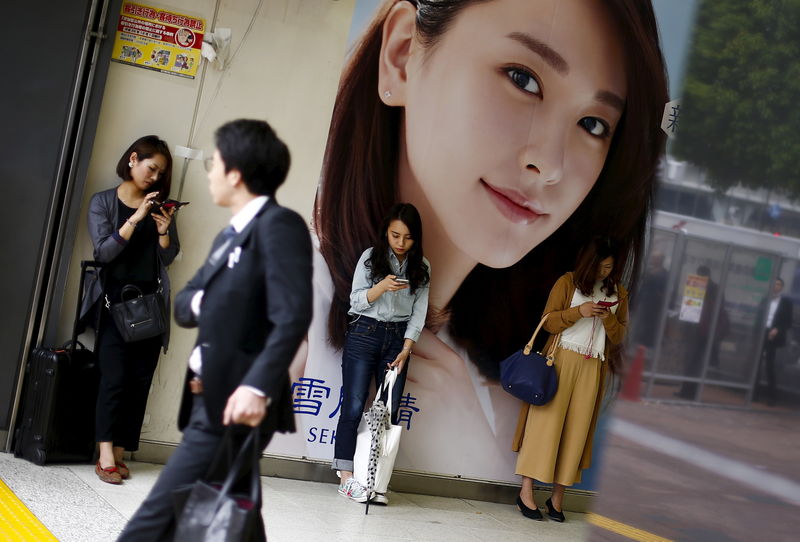ION expands ETF trading capabilities with Tradeweb integration
Investing.com -- Japanese consumer price index inflation rose as expected in April, trending back towards 40-year highs after a lull in the first quarter and heralding more pressure on the Bank of Japan to eventually tighten policy this year.
National core consumer price index inflation, which excludes volatile items such as fresh food, rose an annualized 3.4% in April, according to data from the Statistics Bureau. The figure was in line with estimates and higher than last month’s reading of 3.1%.
Including fresh food, national CPI inflation rose 3.5% in April, much higher than expectations of 2.5% and March’s reading of 3.2%. Inflation also grew 0.6% in April from the prior month.
Food prices continued to be one of the biggest factors behind inflation, as Japan struggles with the increasing cost of food imports. This largely offset weaker fuel and electricity prices, although the latter fell due to government subsidies introduced earlier this year to curb inflation.
Japan’s dependence on imports, ranging from fuel to key food ingredients, has been the biggest contributor to inflation over the past year, amid widespread disruptions in global supply chains caused by the Russia-Ukraine conflict.
Weakness in the yen, spurred by a widening gulf between local and U.S. interest rates, has also factored into more expensive exports. The yen was flat on Friday after sinking for the past six sessions, as fears of a hawkish Federal Reserve and strong dollar came back into play.
Inflation moved further above the Bank of Japan’s 2% annual target, reinforcing expectations that the central bank will eventually tweak its yield control policies later this year under new Governor Kazuo Ueda.
But Ueda had cooled expectations for an immediate change in the bank’s dovish stance during an April meeting by announcing a year-long monetary policy review.
Still, with inflation trending higher after easing somewhat in the first quarter of 2023, the BOJ now faces renewed pressure to tighten policy.
The Japanese economy also grew more than expected in the first quarter, data showed earlier this week. The reading pointed to some resilience in the economy thanks to strong tourism and corporate earnings, and gives the BOJ more headroom to consider tightening policy.
